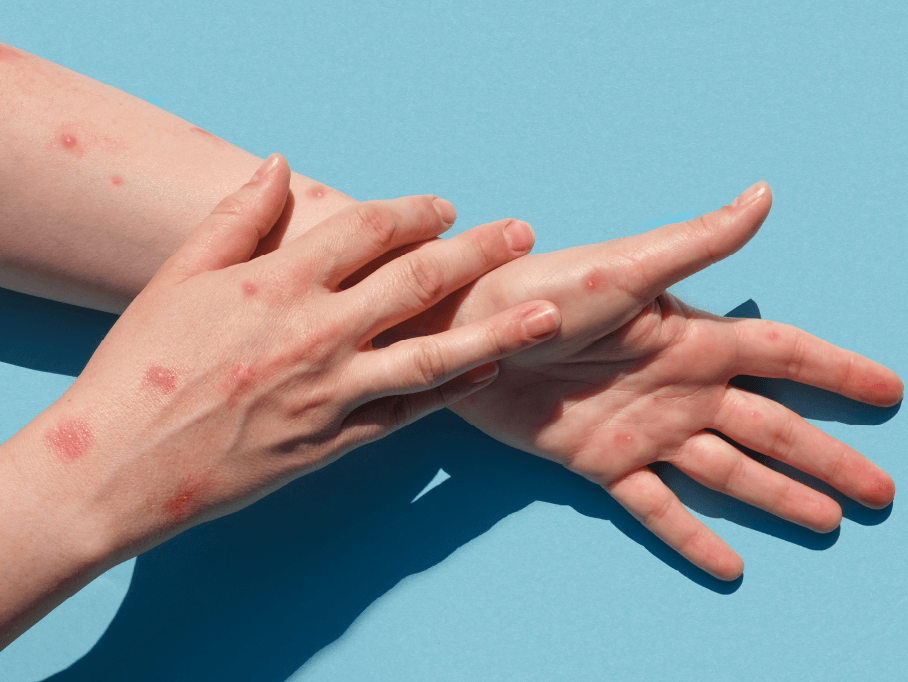Singapore has reported a small number of imported Mpox cases, primarily linked to travellers returning from affected regions. While the risk of widespread community transmission remains low, Ministry of Health (MOH) continues to monitor the situation closely and take necessary measures to prevent an outbreak.
In light of recent developments, Singapore has also introduced precautionary Mpox screenings at Changi and Seletar airports, as well as at sea checkpoints. Travellers from areas with reported Mpox cases will undergo health screenings, including temperature checks and visual assessments for symptoms. These measures are designed to identify potential cases early and ensure that symptomatic individuals receive proper care and isolation, helping to minimise the risk of community transmission.
MOH has implemented comprehensive protocols to manage potential Mpox cases, including early detection, isolation, and contact tracing to prevent the spread of the virus, and regularly updates the public and healthcare providers to ensure everyone remains informed and prepared. For the latest advisory and detailed guidelines on Mpox, you can refer to MOH’s advisory on Mpox.
What is Mpox?
Mpox is a viral infection caused by the monkeypox virus, which belongs to the same family as the virus that causes smallpox. Although Mpox is generally less severe than smallpox, it can still lead to significant health issues, especially in vulnerable populations such as children and seniors.
Symptoms of Mpox
Mpox typically begins with flu-like symptoms, including fever, headache, muscle aches, and fatigue. Within a few days, a rash develops, usually starting on the face and spreading to other parts of the body. The rash goes through several stages, from red spots to blisters, and eventually forms scabs that fall off.
In addition to the rash, swollen lymph nodes may occur, which can help distinguish Mpox from similar viral infections like chickenpox.
Mpox in Children and Seniors
Children and seniors are particularly vulnerable to Mpox due to their generally weaker immune systems. In children, the infection may lead to more severe symptoms, including dehydration from fever or difficulty managing the rash. Seniors, especially those with underlying health conditions, may also experience more severe complications if infected.
Given their increased vulnerability, it is crucial for parents and caregivers to monitor symptoms closely in these populations and seek medical advice promptly.
How is Mpox Spread?
Mpox spreads through close contact with an infected person, including skin-to-skin contact, bodily fluids, or contaminated materials like bedding. While it is less contagious than some other viral infections, Mpox can spread quickly in environments where close contact occurs, such as within households.
Preventive Measures
To protect yourself and your loved ones from Mpox, consider the following preventive measures:
- Good Hygiene: Regular hand washing with soap and water is essential, especially after contact with sick individuals or animals. Hand sanitizers with at least 60% alcohol can also be effective.
- Avoid Close Contact: Stay away from individuals showing symptoms of Mpox. If you need to care for someone who is sick, use protective gear such as gloves and masks.
- Caution with Animals: Avoid handling wild animals or consuming bushmeat, as Mpox can be transmitted from animals to humans.
- Stay Informed: Keep up with the latest updates from reliable sources like MOH and World Health Organization (WHO).
What to Do If You Suspect Mpox
If you or someone you know develops symptoms, especially children or seniors, it’s important to seek medical attention immediately. Contact a healthcare provider via telemedicine at the first signs of illness. Early diagnosis and treatment can help manage symptoms and prevent the virus from spreading. Telemedicine offers a safe way to receive timely care without risking further exposure to others.
In addition to seeking medical consultation, over-the-counter (OTC) products like calamine lotion can help soothe itching and discomfort caused by the rash. For children experiencing fever or pain, ibuprofen or paracetamol can be used to manage these symptoms. You can conveniently purchase calamine lotion, ibuprofen, and other children’s OTC products through DA Marketplace, with free doorstep delivery in Singapore. Shop online a range of OTC products for children here.
Treatment and Vaccination
There is no specific treatment for Mpox, but symptoms can be managed with supportive care. In some cases, antiviral medications may be prescribed. Additionally, the smallpox vaccine has been shown to be effective in preventing Mpox, and vaccination may be recommended for individuals at higher risk, such as healthcare workers or close contacts of confirmed cases.
While the risk of Mpox in Singapore remains low, it’s crucial to stay vigilant, especially for vulnerable groups like children and seniors. By following preventive measures and seeking timely medical advice, we can protect ourselves and our community. If you experience any symptoms, don’t hesitate — visit your nearest clinic or teleconsult a 24-hour GP conveniently via the Doctor Anywhere app.







